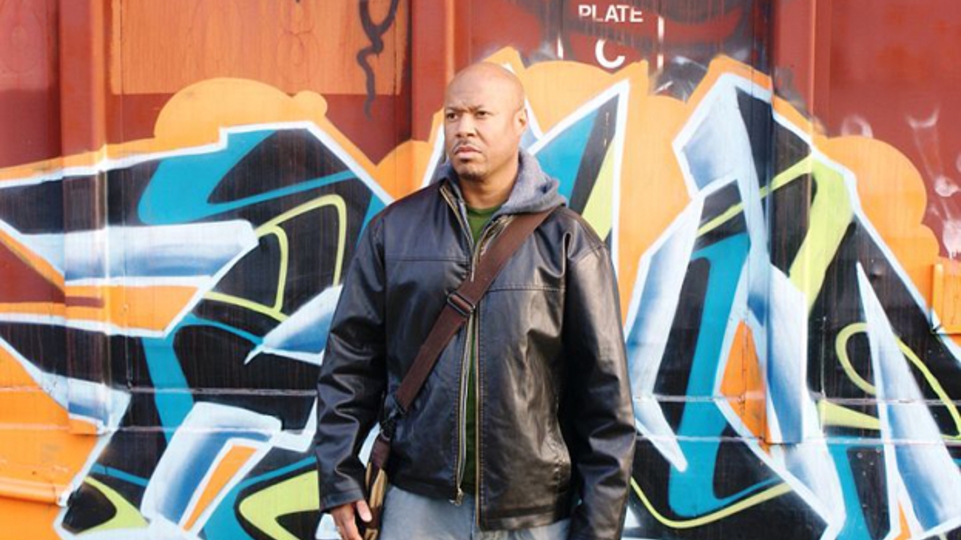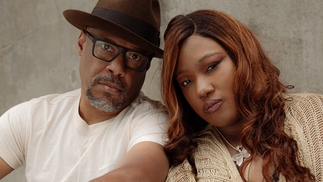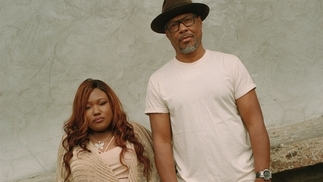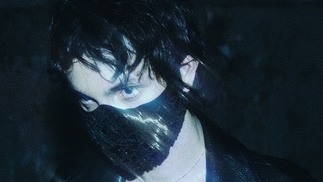60 SECONDS WITH...ROBERT HOOD
Detroit legend speaks out

Robert Hood was a member of Underground Resistance, the legendary militant visionary techno collective from Detroit. After leaving UR in the early 1990s, Robert pioneered a minimalist form of techno — along with Daniel Bell, Richie Hawtin etc — in reaction to the increasingly hardcore “too ravey” twists and turns that techno was taking. Over a decade later, minimal techno exploded into the dance music mainstream, and Hood was hailed as one of its rightful innovators.
Robert moved from Detroit to Alabama nine years ago with his family, building his own house in the process. He's just released his wicked latest album, 'Paradise', on M-Plant under his Floorplan alias, and as well as a techno DJ/producer is also a licensed and ordained minister — frequently preaching in his church in Alabama and also in Detroit. “Being connected to God keeps my creativity fresh,” he tells DJ Mag...
Way back when, Robert, what made you want to join Underground Resistance?
“Just trying to get into techno, trying to get into the scene. I'd taken a demo tape down to KMS to Anthony 'Shake' Shakir, I'd known him since high school, and I'd known Mike Huckaby and a couple of other guys who were already in the scene. So I took a demo tape down to KMS, got no reply and kept knocking on doors.
“Eventually I met Mike [Banks] and Jeff [Mills] through a DJ named Mike Clark — a well-known Detroit DJ and artist. I was trying to get my foot in the door. I always wanted to work with The Wizard, it's funny because I always envisioned myself working with Jeff, before Underground Resistance. It just came into fruition that way. What attracted me was the progressive nature of techno, Detroit was all about being progressive at the time. It gave me another outlet for displaying my creativity. I'd always been an artist. My father was a musician, so it was in my DNA, and then the music and ideas of Motown came along and were progressive. That's what tugged at my spirit and made me want to do this thing.”
When you became involved with UR, you became the Minister of Information, didn't you? What did that involve?
“Well, I was never the Minister of Information, I don't know where that rumour got started. That was never me, that person has always been anonymous and we'll keep it that way. I was the UR gopher at the time, for the most part. I was the one who would run errands at the office and do whatever needed taking care of — I was responsible for doing artwork, for answering the phone, checking in with distributors and retailers and minding the shop while they were away. I wore many hats, but Minister of Information wasn't one of them.”
You must've learned a whole bunch of stuff while you were with Underground Resistance...
“Absolutely, it was stuff you can't learn in school. I learned a lot. There was a wealth of information coming out of UR, and the thing about it is Mike and Jeff were not the type of guys who would lie to you and say something was right, when it wasn't. It was run like a military outfit — very militant — and if something was not ready, then it was not ready. They didn't mince words, and they didn't sugarcoat anything, they kept me in training mode for several years. I'd expressed the desire to do music, but they said, 'When the cake is ready'. That was their thing. Learning patience was one valuable thing.”
After you left UR, you became a pioneer of minimal techno. When minimal techno later exploded in the mid-noughties, did you feel overlooked in terms of influence?
“No, not at all, I really didn't have that kind of feeling. When you're secure in your place in history and you know who you are and what you've done... I realised a long time ago that I couldn't be measured by charts or by how many interviews I'd done, or by all the hype. I was very secure in myself. At the same time, I did want to reintroduce myself and say, 'Hey, I'm still here, and I'm really just getting started. And don't forget there's another side to minimalism'.
“There's nothing wrong with guys like Loco Dice and the whole M_nus crew and Magda and everybody, they have their way of speaking — their language — and their rendition and their thoughts behind what minimalism is, it's great. Fantastic. The same thing with dudes like Marcel Dettmann and Dan Clark. Mark Broom has his way of speaking, we all bring this language together, and that's the beauty of music.
“Some people do have selective memories, though. Some people choose to remember what they want to remember, and forget what they want to forget, but the thing is being secure in that I'm empowered to do this thing. I'm not even supposed to be here — I should've been dead years ago.”
Crikey, how come?
“I've been shot in the head some years ago, back in the early '90s. I shouldn't even be alive right now, so I'm blessed in the power to be able to be here. I count my blessings instead of shaking my fists and saying to the world, 'Hey, you forgot about me'. I know that what God has for me is for me, and my latter years will be greater than the former years. The world hasn't seen anything yet.”
If Jesus was alive today, would he be a DJ?
“I think that Jesus IS a DJ. I say that because... the best thing we can do to be like God is to have vision and creativity. God spoke and he formed the world, he said, 'Let there be light, let there be sun'. It's sort of like a DJ pulling out... 'Let this music play, let this sound be heard — and display it to the world for the world to see'. It's like turning on sunshine. 'Hey, listen at the waterfall. Listen at the thunder, the lightning. How much power and creative control we have', and God said 'Let there be'. He spoke it in their word. Jesus — he spun parables like DJs spin tracks, so a minister when he's preaching will spin stories and parables and pictures and pick them out, and preach them to the masses as if they were rhythm tracks. The way he played the rhythm tracks and brought the people to be inspired is a lot like a DJ to me. When I DJ I feel like I'm in a pulpit, preaching the techno gospel to the masses.”






